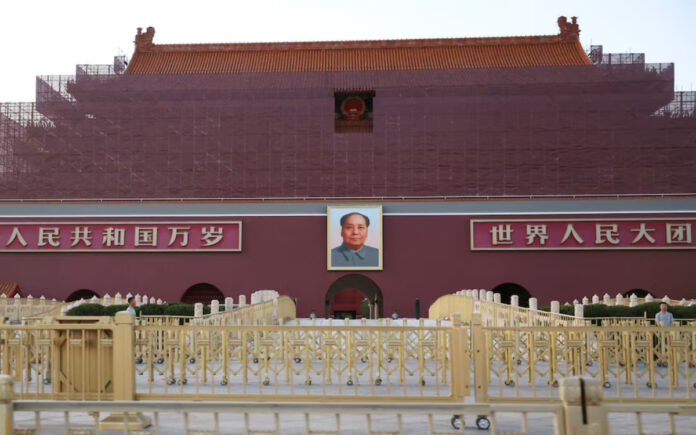Taipei: Taiwan’s President Lai Ching-te and U.S. Secretary of State Marco Rubio have reaffirmed their commitment to remembering the victims of the 1989 Tiananmen Square crackdown, marking the 36th anniversary of the violent suppression of pro-democracy protests—an event China continues to censor and suppress.
The June 4 massacre, in which Chinese troops opened fire on students and civilians rallying for democratic reform in Beijing’s iconic Tiananmen Square, remains one of the most sensitive political topics in China. The government neither acknowledges the event in public discourse nor permits any form of official commemoration, maintaining a strict veil of censorship over the tragedy.
Despite China’s silence, remembrance ceremonies and messages of solidarity continue abroad. In Taipei, where Tiananmen memorials are traditionally held, President Lai paid tribute to the courage of the demonstrators. Writing on Facebook, Lai said the anniversary was “not only to mourn history, but also to perpetuate this memory,” highlighting that “human rights are a concept shared by Taiwan and other democracies that transcend generations and borders.”
He further emphasized the contrast between authoritarian and democratic systems:
“Authoritarian governments often choose to silence and forget history, while democratic societies choose to preserve the truth and refuse to forget those who gave their lives – and their dreams – to the idea of human rights,” Lai wrote. “Not only do we refuse to forget history, we will implement our core values every day.”
President Lai, whom Beijing labels a “separatist”, has repeatedly sought dialogue with China—offers that have been consistently rejected.
In Washington, Secretary of State Marco Rubio also commemorated the date, honoring the bravery of those who resisted repression in 1989.
“Today we commemorate the bravery of the Chinese people who were killed as they tried to exercise their fundamental freedoms, as well as those who continue to suffer persecution as they seek accountability and justice for the events of June 4, 1989,” Rubio said.
“The CCP actively tries to censor the facts, but the world will never forget,” he added, directly referencing the Chinese Communist Party.
Australia echoed similar sentiments. The country’s Consul-General to Hong Kong and Macau, Gareth Williams, posted on X:
“On this day, we join communities around the world to remember the loss of life at Tiananmen Square on 4 June 1989.” He reiterated Canberra’s commitment to upholding human rights, including freedom of expression and political participation.
Meanwhile, in China, security was visibly heightened around Tiananmen Square. Police erected multiple checkpoints to inspect IDs and prevent photography. As in previous years, Chinese social media platforms carried no mention of the anniversary due to government censorship.
The Tiananmen Mothers, an advocacy group representing relatives of victims, released their annual statement urging the Chinese government to acknowledge and respond to the massacre.
“The executioners of that year have passed away one after another, but as the continuation of the ruling party, the current government has a responsibility to respond to and address the Tiananmen Massacre,” said Zhang Xianling, whose son Wang Nan was killed in the crackdown, in a video message.
Also Read | South Korea’s New President Lee Pledges to Heal Nation After Martial Law Crisis
In Hong Kong, once a beacon for open remembrance, authorities tightened security around Victoria Park, the traditional site of mass candlelight vigils. Since China’s imposition of a sweeping national security law in 2020, open commemorations have all but disappeared.
Hong Kong Chief Executive John Lee warned on Tuesday that police would “take stringent enforcement actions against any acts endangering national security.” Customs officers raided a shop selling white candles, and a performance artist near Victoria Park was ordered to leave the area.
Also Read | Global Conflicts Force Airlines into Risky and Costly Reroutes
Despite mounting restrictions, resistance persists. Jailed pro-democracy activist Chow Hang-tung is reportedly marking the occasion with a 36-hour hunger strike in prison.
As authoritarian pressure deepens, Taiwan, the U.S., and other democracies continue to keep the memory of Tiananmen alive—defying censorship and honoring the values that sparked one of China’s most defining modern uprisings.



